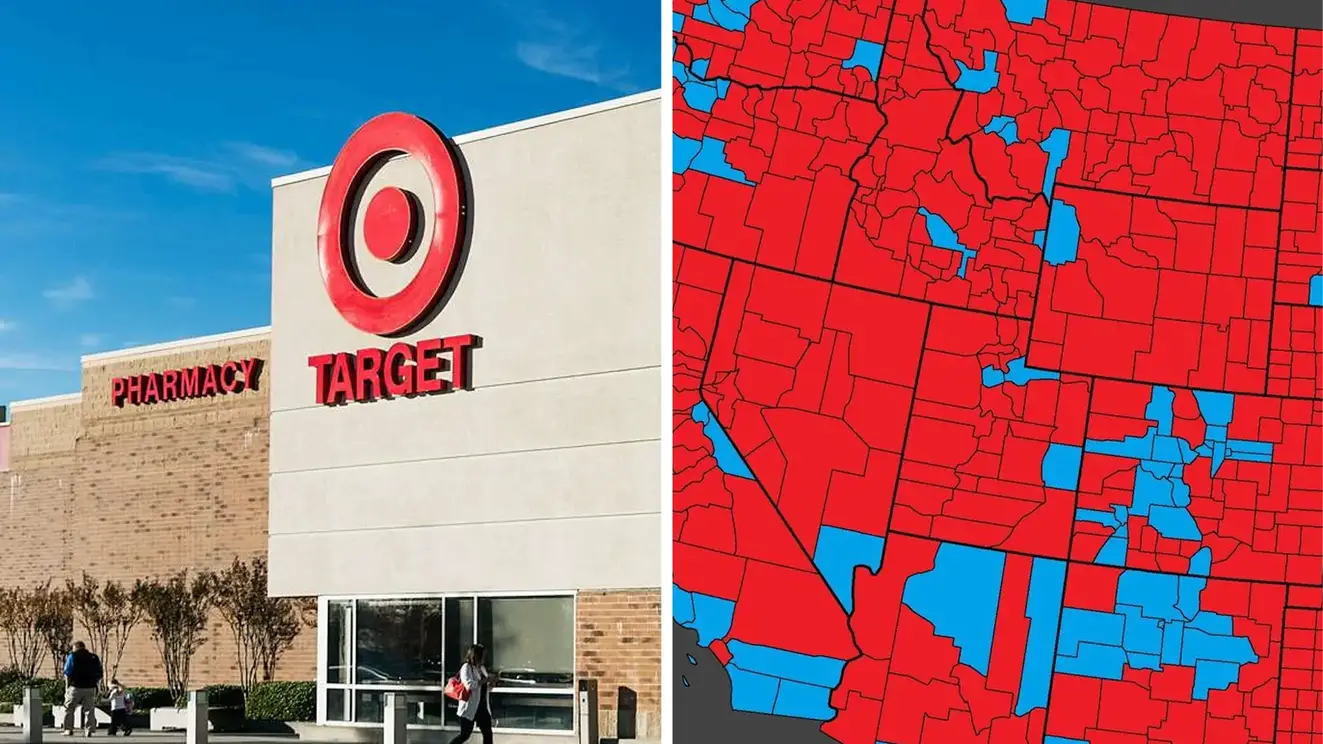In a bold and controversial business decision, Target has announced plans to close several stores in traditionally conservative “red” states and relocate its operations to more liberal “blue” states. The company’s reasoning centers on the desire to operate in areas where they feel safe and supported, creating significant waves in the retail industry and sparking conversation around the implications of such a move.

1. The Background Behind Target’s Decision
In recent years, Target has positioned itself as a brand committed to inclusivity, social responsibility, and progressive values. From embracing sustainable business practices to supporting LGBTQ+ rights, Target has solidified a brand image that resonates with consumers who value inclusivity and diversity. However, this progressive stance has, at times, put the company at odds with conservative areas, where such values may be viewed differently.
For Target, relocating to “blue” states is seen as a strategic choice to align with areas that share its values and, according to company representatives, where they feel their stores and employees can operate more securely. While the decision is rooted in a desire to protect employees and brand values, it has raised questions around Target’s commitment to serve all Americans regardless of political orientation.
2. The Impact on Target’s Customer Base
Relocating stores may alienate some of Target’s loyal customers in red states. Target has historically been known for affordable, quality products accessible to a broad audience across various demographics. By closing stores in red states, the brand risks losing a segment of its customer base, which could lead to decreased revenues in these regions.
Target aims to mitigate potential backlash by emphasizing that its decision is based on safety and security rather than political bias. However, some customers feel this move could deepen the political divide, as major brands become increasingly associated with one side of the political spectrum. As a result, Target’s choice to close stores could inadvertently push some customers to shop with competing brands, especially those perceived as more politically neutral or aligned with conservative values.
3. Financial Implications for Target
Moving operations from red states to blue states will undoubtedly have significant financial implications for Target. The cost of relocating and opening new stores, especially in urban areas where blue-state populations tend to concentrate, is substantial. From real estate and construction expenses to employee relocation costs, Target will have to allocate considerable funds to make these transitions smoothly.
Moreover, some analysts are concerned about the potential for decreased revenue streams. Red states represent a substantial market, particularly in suburban and rural areas, where residents may rely on Target stores for affordable essentials. Target’s departure could create a gap in the market, with consumers shifting to other big-box retailers, such as Walmart, that remain committed to these areas.
4. The Social Message Target is Sending
By aligning its operations with predominantly blue states, Target is sending a powerful message about its brand values. The company’s choice may resonate strongly with progressive consumers who appreciate its stance on social issues. Target has, over the years, taken several high-profile stands on social matters, from committing to renewable energy goals to publicly supporting racial justice initiatives. These decisions have shaped Target’s image as a company willing to put its values above profit in some cases, and this latest move to relocate could reinforce that image.
However, the decision to close stores based on political alignment is uncharted territory for most companies, and it could set a precedent in the industry. While some see this as a positive step toward creating safer environments for employees and customers, others argue that it could further polarize American society. By selectively choosing store locations based on perceived political safety, Target may inadvertently contribute to a trend of corporate-based social division, where businesses only serve regions that align with their brand values.
Leave a Reply